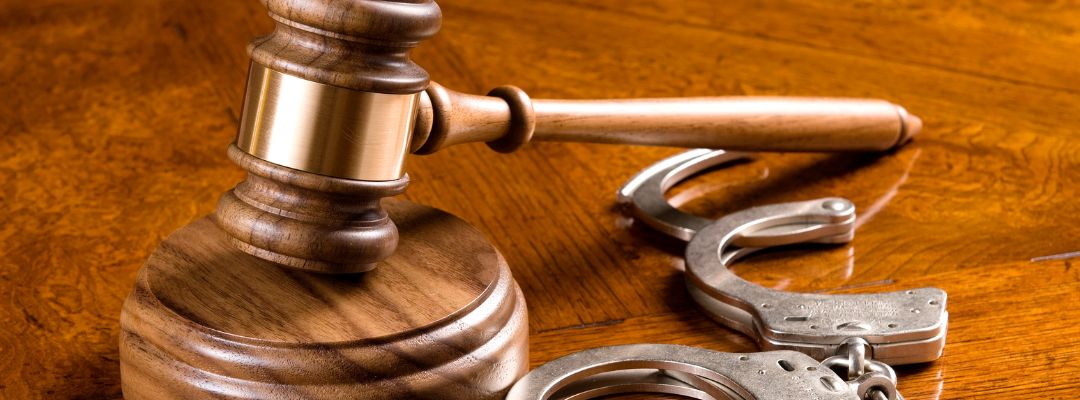
When to Hire a Car Accident Attorney: Is It Worth It?
Car accidents are more common than we’d like to admit, and they often happen when we least expect them. Whether it’s a minor crash or a major collision, the aftermath can bring a lot of stress, pain, and confusion. Many people find themselves asking, “Should I hire a car accident attorney?” The truth is, not every accident requires a lawyer, but in many situations, legal help can make a huge difference.
From dealing with insurance companies to making sure you’re fairly compensated for your injuries and losses, a skilled car accident lawyer can be your best ally. If you’re feeling overwhelmed, unsure about your next steps, or facing mounting bills, hiring a legal expert could help protect your future. This blog will help you understand when it makes sense to hire a car accident lawyer and how to find the right one to get the compensation you deserve.
Understanding the Role of a Car Accident Attorney
A Car Accident Attorney is a legal professional who focuses on helping people involved in car crashes. Their main job is to represent your interests, protect your legal rights, and fight for the compensation you deserve. They work with insurance companies, gather evidence, file legal documents, and, if needed, go to court on your behalf. These lawyers understand personal injury laws, local traffic laws, and how to negotiate fair settlements. Whether your accident is big or small, an experienced attorney can guide you through the process, answer your questions, and ensure that no one takes advantage of you. Their goal is simple—to make sure you get justice and the help you need to recover.
When Should You Hire a Car Accident Lawyer?

Knowing when to hire a car accident lawyer can be the key to protecting your health, finances, and future. Here are some common scenarios where hiring an attorney can be highly beneficial:
- You’re Injured in the Accident: If you’ve been hurt, even if the injuries seem minor, it’s wise to consult a Car Accident Attorney. Some injuries can get worse over time, and you might need ongoing treatment. A lawyer can help make sure your medical costs, lost wages, and pain and suffering are fully covered.
- The Other Driver Was at Fault: When another driver causes the crash, proving their fault isn’t always easy. A Car Accident consultant gathers police reports, witness statements, and any available video footage to build your case. They work to hold the responsible party accountable so you don’t get stuck with the bill.
- Insurance Is Giving You Trouble: Insurance companies often try to settle claims for as little as possible. If you’re facing delays, denials, or low offers, an experienced Car Accident lawyer in Maryland can handle all negotiations and make sure you’re treated fairly.
- You Don’t Understand the Legal Process: The legal process can be confusing and overwhelming. A Car Accident Attorney explains your rights, helps you make informed choices, and ensures that everything is done correctly and on time, so you can focus on healing.
- You Need Help with Paperwork: From medical records to claim forms, car accidents involve lots of paperwork. A lawyer will help you organize and submit everything properly. This avoids mistakes that could delay or reduce your Car Accident compensation.
What Can a Car Accident Lawyer Do for You?

A Car Accident Attorney does far more than just fill out legal documents. They act as your guide and your defender throughout the entire process. Here are the many ways they support you:
- Investigation: A Car Accident Attorney thoroughly investigates your case by reviewing police reports, witness statements, accident scene photos, and medical documents. This detailed investigation helps uncover the truth about what happened and who was at fault. A solid investigation forms the foundation of a strong case and increases your chances of winning fair compensation.
- Evidence Collection: Lawyers know exactly what kind of evidence is needed to prove fault and damages. They collect important materials like surveillance footage, damage assessments, and medical records. By gathering and organizing this evidence, your attorney builds a strong argument that supports your claim and forces insurance companies or the court to take your case seriously.
- Communication with Insurance: Insurance companies often try to settle claims for less than they’re worth. Your lawyer handles all communication with them, making sure you don’t say anything that could harm your case. They know how to counter insurance tactics and fight for a fair payout, saving you time and protecting your rights in the process.
- Medical Coordination: Some attorneys work directly with doctors or medical professionals familiar with injury claims. This ensures your injuries are properly diagnosed and documented. Accurate medical records are crucial for building a solid claim. Lawyers also help ensure your ongoing treatments and long-term medical needs are considered when calculating your total compensation.
- Claim Valuation: Determining how much your claim is worth involves more than adding up medical bills. A car accident attorney will also consider lost wages, future medical needs, and emotional suffering. They ensure every damage, past and future, is calculated accurately, helping you get the full compensation you deserve and avoid settling for too little.
- Settlement Negotiation: A skilled car accident attorney knows how to negotiate with insurance adjusters and opposing lawyers. Their goal is to reach a fair settlement without going to court. They’ll push back on low offers, use evidence to strengthen your position, and keep you informed. Their negotiation skills can often result in higher payouts.
- Court Representation: If your case doesn’t settle, your attorney is prepared to take it to court. They’ll file the proper paperwork, present your case in front of a judge or jury, and argue on your behalf. Their legal expertise, courtroom experience, and presentation skills give you a strong chance of winning the compensation you deserve.
Benefits of Hiring the Best Car Accident Lawyer

Not all lawyers are the same. Hiring the Best Car Accident lawyer gives you the highest chance of winning your case and receiving the maximum compensation. Let’s look at what sets the best apart:
- Experience: Experienced lawyers know the ins and outs of accident law. They’ve handled many cases like yours and understand how to deal with complex situations. Their past work can help them anticipate issues and resolve your case faster and more effectively.
- Good Reputation: A lawyer with a solid reputation has earned it through successful cases and satisfied clients. Look for online reviews, testimonials, and local references. A respected attorney is more likely to be taken seriously by insurance companies and courts.
- Specialization: The best car accident lawyers focus specifically on personal injury or auto accident cases. This means they’re deeply familiar with the laws, tactics, and tools needed to win your case and get you full Car Accident compensation.
- Strong Negotiation Skills: Winning a large settlement often depends on how well your lawyer can negotiate. A top-rated Car Accident consultant knows how to push back on low offers and argue for what you’re truly owed.
- Personal Attention: Great lawyers treat you like a person, not just a case number. They communicate clearly, answer your questions, and keep you informed every step of the way, giving you peace of mind during a difficult time.
Is Hiring a Car Accident Attorney Worth It?
Hiring a Car Accident Attorney is absolutely worth it—especially when your health, money, and future are on the line. After a car accident in Maryland, you may be dealing with pain, hospital bills, car repairs, and time off work. The last thing you need is to fight with an insurance company or navigate legal forms alone. A good lawyer takes that burden off your shoulders.
More importantly, they often recover far more money than what you could on your own. Studies show that people who hire a car accident lawyer often get higher settlements, even after legal fees are taken out. And since most attorneys work on a contingency basis, you don’t pay unless they win your case. Whether it’s negotiating with an insurer or taking your case to court, having legal support ensures that your rights are protected and your future is secure.
Final Thoughts
After a Car Accident, your focus should be on healing, not on legal battles or insurance disputes. If you’ve been hurt, suffered losses, or just feel overwhelmed, hiring a Car Accident Attorney can bring much-needed clarity and support. With the right legal help, you can protect your rights, avoid costly mistakes, and receive the Car Accident compensation you’re entitled to. Whether you’re looking for a Car Accident lawyer near me or aiming for the Best lawyer in Maryland for your case, the most important thing is to act quickly. Time matters. Getting professional help early on can make all the difference in your recovery, both physically and financially. Don’t wait until it’s too late.















